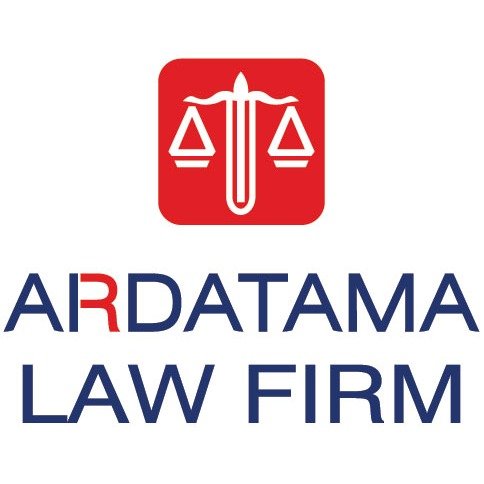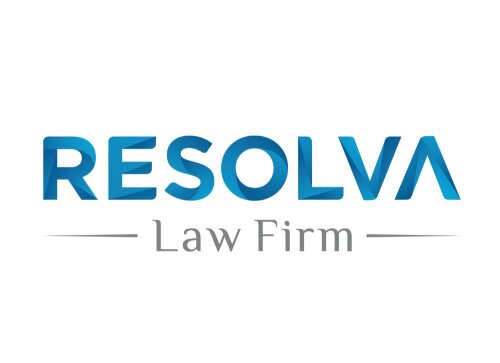Best Sustainable Finance Lawyers in Jakarta
Share your needs with us, get contacted by law firms.
Free. Takes 2 min.
List of the best lawyers in Jakarta, Indonesia
About Sustainable Finance Law in Jakarta, Indonesia
Sustainable finance refers to the process of taking environmental, social, and governance (ESG) considerations into account when making investment decisions in the financial sector. In Jakarta, Indonesia’s vibrant capital and economic center, sustainable finance is rapidly gaining importance as companies and regulators aim to align business activities with long-term environmental responsibility and social welfare. Local policies and legal frameworks are evolving to support green investments, climate-friendly projects, and ethical lending practices. Both the public and private sectors are emphasizing compliance with ESG criteria, particularly as Indonesia works toward its commitments under international climate agreements.
Why You May Need a Lawyer
Navigating sustainable finance can be complex due to evolving regulations and the multidisciplinary nature of the field. People or businesses in Jakarta may require a lawyer for a variety of reasons, such as:
- Understanding compliance requirements for sustainable investment projects
- Drafting or reviewing green bonds, sustainability-linked loans, or ESG disclosures
- Interpreting regulatory updates from the Financial Services Authority (OJK) or other relevant bodies
- Advising on risk assessment and due diligence regarding environmental or social impact
- Resolving legal disputes related to misrepresentation of sustainability credentials, often known as greenwashing
- Assisting multinational companies to adhere to both Indonesian regulations and global standards
- Advising on contractual arrangements that include ESG covenants or reporting obligations
Local Laws Overview
Indonesia has implemented several laws and regulations to promote sustainable finance, with a special emphasis in Jakarta as the country’s administrative hub. Some key legal aspects include:
- The Financial Services Authority (OJK) Regulation No. 51/POJK.03/2017 on Sustainable Finance Implementation requires financial institutions, issuers, and public companies to integrate sustainable business practices.
- Sustainable finance roadmaps direct the adoption of ESG principles and reporting in financial products and institutions.
- Mandatory annual sustainability reports for banks and other public companies, outlining progress toward ESG objectives.
- Clear guidelines for the issuance of green bonds and other sustainable finance instruments under OJK’s frameworks.
- Ongoing updates and encouragement for voluntary best practices through collaborations with industry and government stakeholders.
Compliance is inspected by regulatory bodies, and non-adherence can lead to penalties or reputational risks. Local Jakarta authorities may also introduce additional requirements based on regional priorities.
Frequently Asked Questions
What is sustainable finance in the context of Jakarta, Indonesia?
It refers to the incorporation of environmental, social, and governance factors into financial services and investment processes, aimed at supporting long-term economic growth while fostering environmental protection and social development.
What legal frameworks govern sustainable finance in Indonesia?
Key frameworks include OJK’s Regulation No. 51/POJK.03/2017, guidelines on green bonds, and other financial sector regulations emphasizing ESG integration.
Who is required to comply with sustainable finance regulations?
All financial services institutions, issuers, and public companies operating in Indonesia are required to comply, including those based in Jakarta.
What is the role of OJK in sustainable finance?
OJK sets the regulations, oversees their implementation, and monitors compliance for financial entities regarding sustainable finance initiatives.
Are there penalties for non-compliance?
Yes. Non-compliance can result in administrative sanctions, monetary fines, and potential reputational damage, especially for public companies.
What are sustainability reports and who must prepare them?
Sustainability reports disclose a company’s activities and progress on ESG metrics. Financial sector institutions, issuers, and public companies must submit these reports annually.
Can small and medium enterprises participate in sustainable finance?
Yes. While obligations may differ, SMEs are encouraged to adopt ESG principles and seek green financing options available in Jakarta.
What is greenwashing and why is it significant legally?
Greenwashing is the act of misleading stakeholders about the environmental benefits of a product or business. It is significant as it may result in legal actions, regulatory penalties, or loss of investor trust.
How can a lawyer help with green bond issuance?
A lawyer can assist with ensuring compliance, preparing necessary documentation, liaising with regulators, and verifying that the use of proceeds meets the required sustainability criteria.
Is sustainable finance limited to environmental issues?
No. It also includes social and governance factors, such as labor rights and transparent corporate behavior, not just environmental impact.
Additional Resources
- Financial Services Authority of Indonesia (OJK) - Main regulatory body for financial and capital market supervision
- Ministry of Environment and Forestry - For environmental standards and regulations that affect finance projects
- Indonesia Stock Exchange (IDX) - Information on ESG indices and sustainability reporting requirements
- Indonesia Sustainable Finance Initiative (IKBI) - A platform for dialogue and resources on sustainable finance
- Jakarta Environmental Agency - Local implementation and support for green projects in the Jakarta area
- Jakarta Legal Aid Institute - For individuals or SMEs needing basic legal support concerning sustainable finance
Next Steps
If you are considering a sustainable finance project or wish to ensure compliance with local laws in Jakarta, it is important to seek qualified legal counsel. Begin by identifying your specific needs such as compliance review, contract drafting, or dispute resolution. Gather all relevant documentation including current financial statements, project details, and any existing ESG policies. Contact a lawyer or law firm specialized in sustainable finance and request an initial consultation. During your meeting, discuss your objectives, ask about relevant experience, and clarify expected fees. Proactively following these steps will help you comply with Jakarta’s sustainable finance laws while supporting your business or personal investment goals.
Lawzana helps you find the best lawyers and law firms in Jakarta through a curated and pre-screened list of qualified legal professionals. Our platform offers rankings and detailed profiles of attorneys and law firms, allowing you to compare based on practice areas, including Sustainable Finance, experience, and client feedback.
Each profile includes a description of the firm's areas of practice, client reviews, team members and partners, year of establishment, spoken languages, office locations, contact information, social media presence, and any published articles or resources. Most firms on our platform speak English and are experienced in both local and international legal matters.
Get a quote from top-rated law firms in Jakarta, Indonesia — quickly, securely, and without unnecessary hassle.
Disclaimer:
The information provided on this page is for general informational purposes only and does not constitute legal advice. While we strive to ensure the accuracy and relevance of the content, legal information may change over time, and interpretations of the law can vary. You should always consult with a qualified legal professional for advice specific to your situation.
We disclaim all liability for actions taken or not taken based on the content of this page. If you believe any information is incorrect or outdated, please contact us, and we will review and update it where appropriate.
















